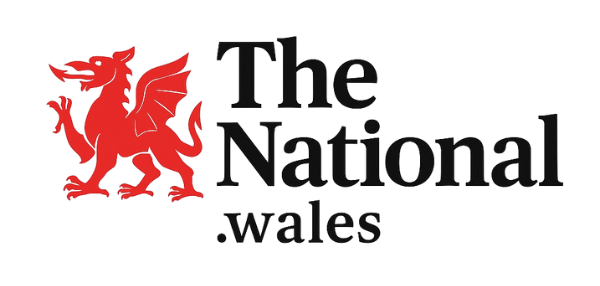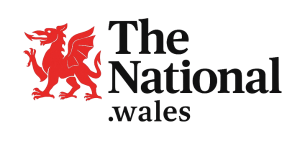Share:
More Similar Stories
£24 Million Welsh Government Investment Unlocks Land for Over 600 New Homes Across Wales
UK Strawberry Alert: Tesco, Sainsbury’s, Morrisons Sell Massive Berries for Wimbledon
Minister Nick Thomas-Symonds confirmed the government is “pushing for” an agreement to allow UK passport holders to use e-gates at European airports, describing it as a “very sensible objective” to avoid long border queues. He emphasized that this would give travelers “more time to spend on holiday or work trips… doing what you want, not being stuck in queues”.
Since Brexit, British arrivals have been relegated to the “all passports” queue, often facing hours-long delays, while e-gates remain reserved for EU and European Economic Area (EEA) passport holders. Thomas-Symonds reiterated this goal on Sky News, stating he wanted UK holidaymakers “being able to go through the border more quickly”.
The agreement, if finalized, would address complaints from travelers, including high-profile figures like Jeremy Clarkson, who has criticized post-Brexit passport queues as a “nuisance” and vowed to avoid European holidays. However, Thomas-Symonds cautioned that “nothing is agreed until everything is agreed,” highlighting the delicate final hours of negotiations.
The UK-EU summit, the first bilateral meeting since Brexit, is set for Monday in London, hosted by Prime Minister Sir Keir Starmer, who described it as a “really significant moment”**. Starmer will meet European Commission President Ursula von der Leyen and European Council President Antonio Costa to announce the deal. The negotiations, described as in “the very final hours” by Thomas-Symonds, span three key policy “baskets”:
1. Defense Cooperation
- The deal includes British access to a €150 billion (£125 billion) EU defense fund, a potential boost for UK defense companies.
- This will establish a closer defense partnership, laying the groundwork for collaboration on issues like the war in Ukraine and European rearmament.
2. Trade and Food Standards
- An agreement on sanitary and phytosanitary standards aims to reduce checks on food imports and exports, addressing issues like lorries waiting 16 hours at borders with fresh food spoiling due to red tape.
- Thomas-Symonds expressed confidence in securing a food deal, stating it would help businesses that have stopped trading with the EU due to excessive certifications.
- The UK will align with EU food standards in some areas, a move Thomas-Symonds described as a “sovereign choice” to ensure easier trade, drawing parallels to the UK’s approach in a US trade deal where food standards were non-negotiable.
- Labour argues this alignment will lower the cost of imported goods and benefit consumers by reducing border checks.
3. Youth Mobility Scheme
- A proposed youth mobility scheme would allow young people to live and work between the UK and EU, similar to existing agreements with New Zealand, South Korea, Australia, and Canada.
- Thomas-Symonds stressed it would be a “smart and controlled scheme” with a “control element” to avoid resembling freedom of movement, which he called a “red line”.
- The scheme is expected to be capped and time-limited, though specific details on numbers or visa durations remain undecided.
4. Political Reactions and Brexit Concerns
The deal has sparked varied responses, with critics warning it risks undermining Brexit’s core principles. Conservative MP Alex Burghart accused the government of positioning the UK as a “rule taker” by pursuing “dynamic alignment” with EU standards, particularly on food and trade.
He argued this would place the UK under the European Court of Justice (ECJ) jurisdiction on certain issues, compromising sovereignty and potentially jeopardizing future trade deals, such as with the US. Burghart told GB News the government appears “poised to sign up to what’s called dynamic alignment,” which he sees as a “big capitulation” and a betrayal of the 2016 Brexit referendum.
Reform UK leader Nigel Farage went further, claiming the deal, including the youth mobility scheme and extended EU fishing rights in UK waters, amounts to “betraying Brexit”. Farage described the mobility scheme as “free movement of people to the under 30s” and predicted it would lead to disproportionate migration to the UK. He also opposed defense cooperation under an “EU flag,” insisting on collaboration without EU oversight.
Liberal Democrat MP Calum Miller criticized the government for not being ambitious enough, advocating for a customs union to provide certainty to British businesses and potentially generate £25 billion in revenue. Miller argued the government should seize the moment to go further in resetting EU relations.
The deal includes other contentious elements still under negotiation. The EU is reportedly pushing to allow its students to pay domestic tuition rates at UK universities and to reduce NHS entry fees for European nationals, which could strain NHS funding amid seven million Britons on treatment waiting lists. These proposals have not been confirmed by Downing Street and may be deferred to ensure the deal’s passage.
The UK is also considering extending EU access to British fishing waters, subject to a cap on catch quantities, renegotiating rules set in 2021. Future talks will address recognizing British professional qualifications in the EU and easing restrictions for touring musicians.
Thomas-Symonds framed the negotiations as driven by “ruthless pragmatism,” focused on jobs, lower household bills, and stronger borders. He clarified that any UK contributions to EU projects would be assessed on a case-by-case basis, with each judged “on its merits”.
Starmer echoed this, promising the deal would be “good for our jobs, good for our bills and good for our borders”. The minister denied plans to exempt student numbers from migration figures, insisting any agreement would align with Labour’s pledge to reduce net migration.
On aligning with EU rules, Thomas-Symonds emphasized a practical approach, stating, “We don’t come at this from an ideological perspective, we come from a practical perspective”. He reiterated that alignment would be a “sovereign choice” to boost trade and support businesses struggling with post-Brexit red tape.
Diplomats from EU member states were expected to meet in Brussels on Sunday for a final review of the deal’s proposals. The announcement is slated for Monday at Lancaster House, with a possible press conference in the Downing Street rose garden to present the deal to the public. Starmer is unlikely to highlight controversial elements, such as potential NHS funding concerns, to maintain focus on the deal’s benefits.
As the UK and EU approach a historic summit, the deal to allow British travelers to use EU e-gates symbolizes a broader effort to mend post-Brexit ties. Minister Nick Thomas-Symonds’s “ruthless pragmatism” underscores the government’s focus on practical benefits like reduced travel delays, enhanced trade, and defense cooperation.
However, critics like Alex Burghart and Nigel Farage warn of compromised sovereignty and a “betrayal” of Brexit. With Sir Keir Starmer set to unveil the agreement alongside Ursula von der Leyen and Antonio Costa, the outcome will shape UK-EU relations for years to come, balancing pragmatic gains against the sensitivities of Brexit’s legacy.







